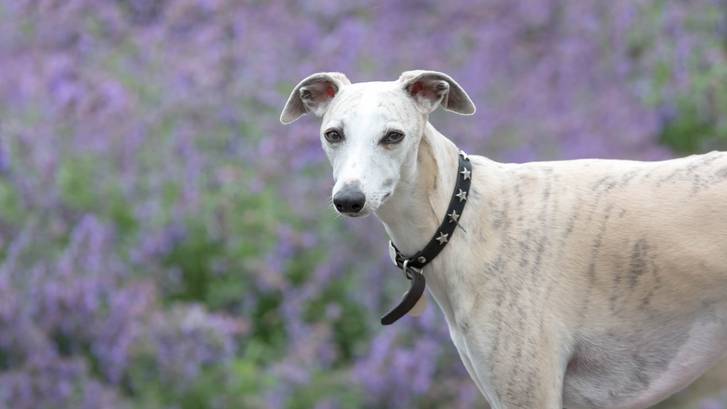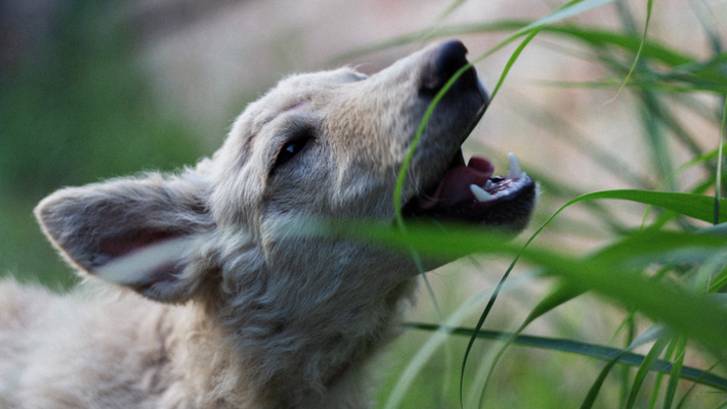Is catnip for dogs safe and is there an equivalent for canines?
Is there such a thing as catnip for dogs? Our vet has the answers…

If you’ve ever seen a cat respond to catnip, you might be wondering if there’s such a thing as catnip for dogs. Do dogs respond to catnip in the same way as cats?
Well, as with most things, the answer isn’t simple, and the jury is still out on whether catnip works on dogs, or if there’s an equivalent. We’re going to take a look at whether catnip is safe for dogs, if it works, and all your other catnip-related questions.
Can dogs have catnip?
The good news is that catnip, which is a herb scientifically known as Nepeta cataria, is safe for dogs. Dogs can safely smell catnip, and it isn’t harmful if they get it on their fur or skin. They can also safely eat catnip, so if your dog just chewed up your cat’s catnip toy, don’t panic! Catnip is even safe for puppies – phew!
Does catnip work on dogs?
When cats smell catnip, they get a dose of the active compound nepetalactone. This compound makes around two thirds of cats behave strangely – often they will become mellow and roll around on the floor, although some cats get overexcited. It even works on many big cats. So, is the same true for dogs?
Well, the answer is probably not. But ‘probably’ is the important word there, as the answer is that we simply don’t yet know whether dogs are affected by catnip. And, if they are, whether it’s all dogs or just some, and what those effects are.
A quick literature search suggests that the effect of catnip on dogs has never been studied, but many herbalists advise that, although dogs don’t respond to catnip in the same obvious way as cats do, it might still have an effect.
Since humans have taken catnip tea for centuries for its calming effect (nepetalactone is very similar, chemically, to the compounds in valerian), it stands to reason that the same calming effect may work on dogs.
Get the best advice, tips and top tech for your beloved Pets

What are the effects of catnip on dogs?
Whilst the effects of catnip on dogs aren’t well researched, I think we can be pretty confident that it doesn’t cause the big behavioral changes that we see with cats. If it did, we’d know about it by now!
The effects on dogs are a lot more subtle, if they exist at all. Whilst relaxation and drowsiness are the desired effects, you might also notice that catnip causes frequent bathroom visits – it’s a diuretic and promotes urination.
How long does catnip last in dogs?
Given that any effects of catnip on dogs are so subtle, and any effects have not been properly studied, we simply don’t know how long catnip lasts in dogs.
It stands to reason that it’s not going to last for more than an hour or two, as most herbal modifiers tend not to be long-lasting. It may even be true that catnip lasts only a few minutes – in cats, the effect tends to wear off after a few minutes, after all.

How much catnip can I give my dog?
If you do decide to give catnip to your dog, you’ll need to know how much you should give. Firstly, you shouldn’t give catnip to a pregnant dog – it might stimulate uterine contractions and premature labor. You also shouldn’t give catnip to dogs that are on other medications or that have known heart or urinary problems as they may be made worse.
The best way to give catnip to your dog is in dog treats. That way, the treat company has done the hard work of dividing the catnip up into safe, easy-to-give amounts. But if you can’t find dog treats containing catnip, you can use the dried herb – a teaspoon sprinkled over the food is best for most dogs.
Catnip won’t suit all dogs though, so if it doesn’t work for your dog, there are plenty of other dog calming supplements to try!
Can dogs overdose on catnip?
As we’ve said, catnip is safe for dogs – so if your dog has a one-off large dose because they ate it accidentally, you shouldn’t worry. But overdosing your dog on catnip long-term could have side effects, including diarrhea, vomiting, and urinary problems.

What to do if your dog eats catnip
Don’t panic if your dog eats catnip – it’s perfectly safe. Of course, a large dose could cause stomach upset just as for any large intake of fiber, but it’s unlikely to have any other effects.
Having said that, if your dog has eaten catnip and you’re worried about their behavior, you should trust your instincts and contact your vet. And don’t forget to call your vet if your pregnant dog has eaten catnip!
How to stop your dog eating catnip plants
If your dog has taken a particular liking to catnip plants in your garden or house, it’s best not to let them help themselves. Dogs don’t know what’s good for them and can easily eat too much catnip. Besides, if they eat it all there won’t be any left for the cats!
Stopping them from eating catnip plants can be difficult. Try fencing off the plants and training a good ‘leave it’ command, rewarding them with something better when they leave the plants alone.
If they’re particularly persistent, you might have to remove the plants altogether – switching to the dried form for your cats might help you to ensure that your dog doesn’t eat too much!

Is there an equivalent of catnip for dogs?
Whilst there has, yet again, been no research into its effects, pet owners have found that dogs respond to anise in much the same way as cats respond to catnip. Anise, a herb related to parsley, has a strong licorice smell.
There are plenty of videos on YouTube of dogs reacting to anise, but it’s also important to note that anise has been used to train scent dogs for a long time – and if the reactions were that reliable, the trainers wouldn’t want to use something that caused behavioral side effects. In other words, it appears that some dogs react to anise, but that doesn’t mean that all dogs do!
Whilst catnip is perfectly safe for dogs, it has a much milder effect on dogs than cats – if any at all! And although anise is sometimes called ‘catnip for dogs’, it doesn’t cause the same reaction in all dogs. But both are safe to try if you’d like to experiment with catnip for dogs.
Read next: Can dogs play with cat toys?
After graduating as a vet from the University of Nottingham in 2016, Dr. Joanna Woodnutt went on to practice companion animal medicine in the Midlands. She quickly developed a love of consulting and helping clients with medical problems such as dermatology, behavior and nutrition - anything that involved helping clients understand their pets better.
Jo started writing about pet health in 2017, realizing that it meant she could help even more pet parents. Since then, she has written for countless online and print publications and is a regular contributor for Edition Dog Magazine. Jo is the director of The Veterinary Content Company, which she founded in 2020. She is also the founder of Petlearnia, a platform that provides pet e-learning courses for pet parents.
Jo now lives in the Channel Islands with her husband Ian and terrier Pixie.

